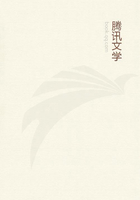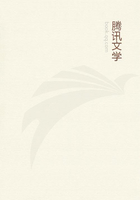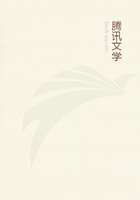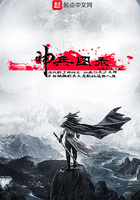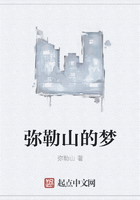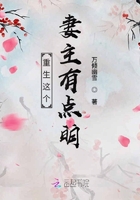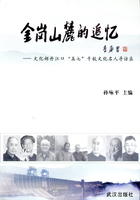The modern Anarchism, in the sense in which we shall be concerned with it, is associated with belief in the communal ownership of land and capital, and is thus in an important respect akin to Socialism.This doctrine is properly called Anarchist Com- munism, but as it embraces practically all modern Anarchism, we may ignore individualist Anarchism altogether and concentrate attention upon the communistic form.Socialism and Anarchist Communism alike have arisen from the perception that private capital is a source of tyranny by certain individuals over others.Orthodox Socialism believes that the individual will become free if the State becomes the sole capitalist.Anarchism, on the contrary, fears that in that case the State might merely inherit the tyrannical propensities of the private capitalist.Accordingly, it seeks for a means of reconciling communal ownership with the utmost possible diminution in the powers of the State, and indeed ultimately with the complete abolition of the State.It has arisen mainly within the Socialist movement as its extreme left wing.
In the same sense in which Marx may be regarded as the founder of modern Socialism, Bakunin may be regarded as the founder of Anarchist Communism.But Bakunin did not produce, like Marx, a finished and systematic body of doctrine.The nearest approach to this will be found in the writings of his follower, Kropotkin.In order to explain modern Anarchism we shall begin with the life of Bakunin[12] and the history of his conflicts with Marx, and shall then give a brief account of Anarchist theory as set forth partly in his writings, but more in those of Kropotkin.[13]
[12] An account of the life of Bakunin from the Anarchist standpoint will be found in vol.ii of the complete edition of his works: ``Michel Bakounine, OEuvres,'' Tome II.Avec une notice biographique, des avant- propos et des notes, par James Guillaume.Paris, P.-V, Stock, editeur, pp.v-lxiii.
[13] Criticism of these theories will be reserved for Part II.
Michel Bakunin was born in 1814 of a Russian aristocratic family.
His father was a diplomatist, who at the time of Bakunin's birth had retired to his country estate in the Government of Tver.Bakunin entered the school of artillery in Petersburg at the age of fifteen, and at the age of eighteen was sent as an ensign to a regiment stationed in the Government of Minsk.The Polish insurrection of 1880 had just been crushed.``The spectacle of terrorized Poland,'' says Guillaume, ``acted powerfully on the heart of the young officer, and contributed to inspire in him the horror of despotism.'' This led him to give up the military career after two years' trial.In 1834 he resigned his commission and went to Moscow, where he spent six years studying philosophy.Like all philosophical students of that period, he became a Hegelian, and in 1840 he went to Berlin to continue his studies, in the hope of ultimately becoming a professor.But after this time his opinions underwent a rapid change.He found it impossible to accept the Hegelian maxim that whatever is, is rational, and in 1842 he migrated to Dresden, where he became associated with Arnold Ruge, the publisher of ``Deutsche Jahrbuecher.'' By this time he had become a revolutionary, and in the following year he incurred the hostility of the Saxon Government.This led him to go to Switzerland, where he came in contact with a group of German Communists, but, as the Swiss police importuned him and the Russian Government demanded his return, he removed to Paris, where he remained from 1843 to 1847.These years in Paris were important in the formation of his outlook and opinions.He became acquainted with Proudhon, who exercised a considerable influence on him; also with George Sand and many other well- known people.It was in Paris that he first made the acquaintance of Marx and Engels, with whom he was to carry on a lifelong battle.At a much later period, in 1871, he gave the following account of his relations with Marx at this time:--Marx was much more advanced than I was, as he remains to-day not more advanced but incomparably more learned than I am.I knew then nothing of political economy.I had not yet rid myself of metaphysical abstractions, and my Socialism was only instinctive.He, though younger than I, was already an atheist, an instructed materialist, a well-considered Socialist.It was just at this time that he elaborated the first foundations ofhis present system.We saw each other fairly often, for I respected him much for his learning and his passionate and serious devotion (always mixed, however, with personal vanity) to the cause of the proletariat, and I sought eagerly his conversation, which was always instructive and clever, when it was not inspired by a paltry hate, which, alas! happened only too often.But there was never any frank intimacy between as.Our temperaments would not suffer it.He called me a sentimental idealist, and he was right; I called him a vain man, perfidious and crafty, and I also was right.
Bakunin never succeeded in staying long in one place without incurring the enmity of the authorities.In November, 1847, as the result of a speech praising the Polish rising of 1830, he was expelled from France at the request of the Russian Embassy, which, in order to rob him of public sympathy, spread the unfounded report that he had been an agent of the Russian Government, but was no longer wanted because he had gone too far.The French Government, by calculated reticence, encouraged this story, which clung to him more or less throughout his life.


